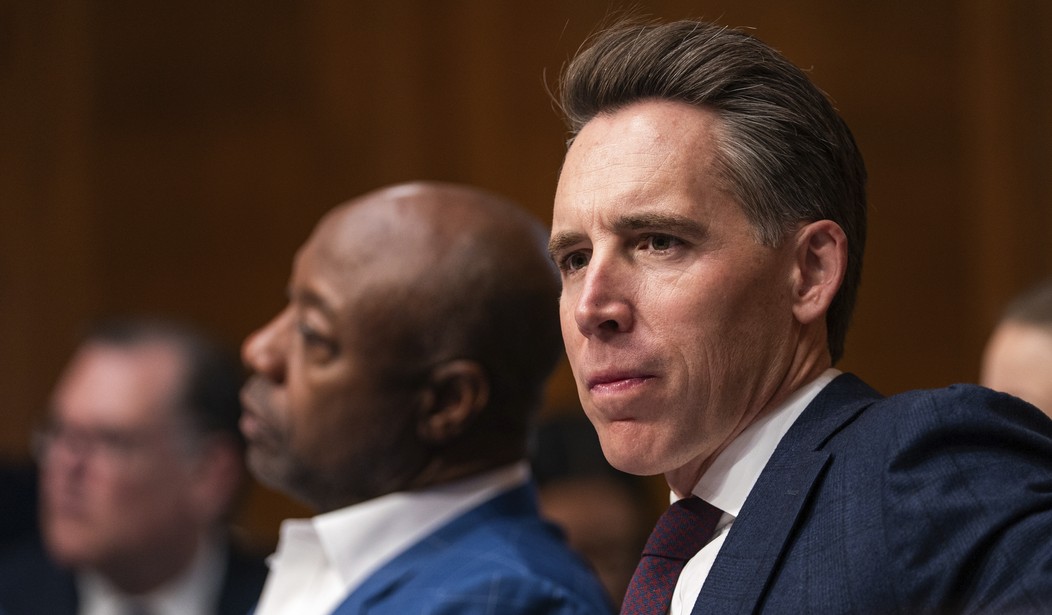Napoleon’s famous counsel—“Never interrupt your enemy when he is making a mistake”—is advice the Republican Party would do well to revisit. At a moment when the Democratic Party’s activist base is increasingly enamored with democratic socialism, Republicans gain nothing by validating the very economic theories their opponents are using to undermine themselves.
There is no mystery about the ideological direction of the modern Left. Figures such as Democratic Sen. Bernie Sanders and Democratic Rep. Alexandria Ocasio-Cortez openly champion socialist economics, and cities like New York and Seattle continue electing leaders who view expansive government intervention as the inevitable future of American governance. In this climate, Republicans should be offering a clear alternative rooted in economic reality, not drifting toward “socialism-lite” in an attempt to capture populist sentiment. Yet some within the party seem eager to meet Democrats halfway—even on policies that history has repeatedly shown to be disastrous.
Rent control is a textbook example. Anyone who has lived in a rent-regulated city has witnessed the predictable consequences of price controls: suppressed construction, deteriorating housing stock, and an increasingly bifurcated market in which only the fortunate few who secure regulated units benefit, while everyone else pays more. These outcomes are not speculative. They are supported by decades of empirical research and acknowledged by economists across the ideological spectrum—from Paul Krugman to Milton Friedman.
The logic is straightforward. When the state imposes a cap on rental income, property owners compensate by cutting maintenance, deferring improvements, or removing units from the market entirely. Over time, supply contracts while demand remains constant or increases, yielding exactly the opposite of what policymakers claim to desire. The historical record—from New York’s 1970s experiment to modern cases in San Francisco and St. Paul—confirms this pattern. Rent control does not reduce housing costs; it reduces housing, period.
Recommended
Nevertheless, New York’s newly elected mayor, Zohran Mamdani, has proposed a four-year freeze on nearly one million rental units and tasked a city already burdened with a projected $300 billion in liabilities with the construction of 200,000 union-built and price-controlled new homes. While no Republican has endorsed such an extreme plan, some are unwisely promoting their own forms of interventionist economics—policies that mirror the error rather than correct it.
The problem with price controls is not confined to housing. They fail wherever they are imposed. Yet Republican Sen. Josh Hawley’s proposal to cap credit-card interest rates at 10 percent repeats the same fundamental mistake. Unsurprisingly, the idea has been welcomed by Sen. Bernie Sanders, whose enthusiasm for government-imposed ceilings is a defining feature of his platform.
Hawley’s argument, like Sanders’s, rests on the premise that Washington can “protect working families” by dictating the terms of private lending. But risk-based pricing is not a corporate indulgence; it is the mechanism that makes consumer credit accessible in the first place. A mandated interest-rate cap would not magically reduce the cost of lending. Instead, it would ensure that banks restrict or eliminate access to borrowers with less-than-perfect credit. The affluent would retain their credit cards. It is the young, the poor, immigrants, and those climbing the economic ladder who would be pushed toward payday lenders and unregulated financial markets. This is not populism. It is an act of economic shortsightedness that harms the very people it purports to help.
History provides clear warnings. President Nixon’s wage and price controls—implemented to fight inflation—produced the economic distortion and stagnation that defined the 1970s. Venezuela’s socialist regime imposed price ceilings on basic goods in the name of fairness and triggered catastrophic shortages that led to a national humanitarian crisis. Republicans have always rejected such policies in principle; they should not flirt with them in practice.
When Republicans endorse diluted versions of failed socialist ideas—whether rent caps, interest-rate ceilings, or wage mandates—they are not carving out a middle ground. They are conceding the fundamental premise that centralized economic control works better than market-driven decision-making. It does not. And voters who have lived through the consequences know it.
The Republican Party does not need a “me too” approach to the Left’s economic agenda. It needs the clarity and discipline to stand firm in the belief that free markets generate prosperity while coercive interventions generate scarcity. Democrats are already bearing the political burden of their ideological shift. Republicans should let them. As Napoleon advised, there is little wisdom in interrupting an adversary who is in the midst of sabotaging his own cause.
Let the socialists sell scarcity. Republicans should continue selling freedom—and the broad, enduring prosperity it enables.
Julio Rivera is a business and political strategist, cybersecurity researcher, founder of ItFunk.Org, and a political commentator and columnist. His writing, which is focused on cybersecurity and politics, is regularly published by many of the largest news organizations in the world.
Editor’s Note: Do you enjoy Townhall’s conservative reporting that takes on the radical left and woke media? Support our work so that we can continue to bring you the truth.
Join Townhall VIP and use the promo code FIGHT to get 60% off your VIP membership!

























Join the conversation as a VIP Member